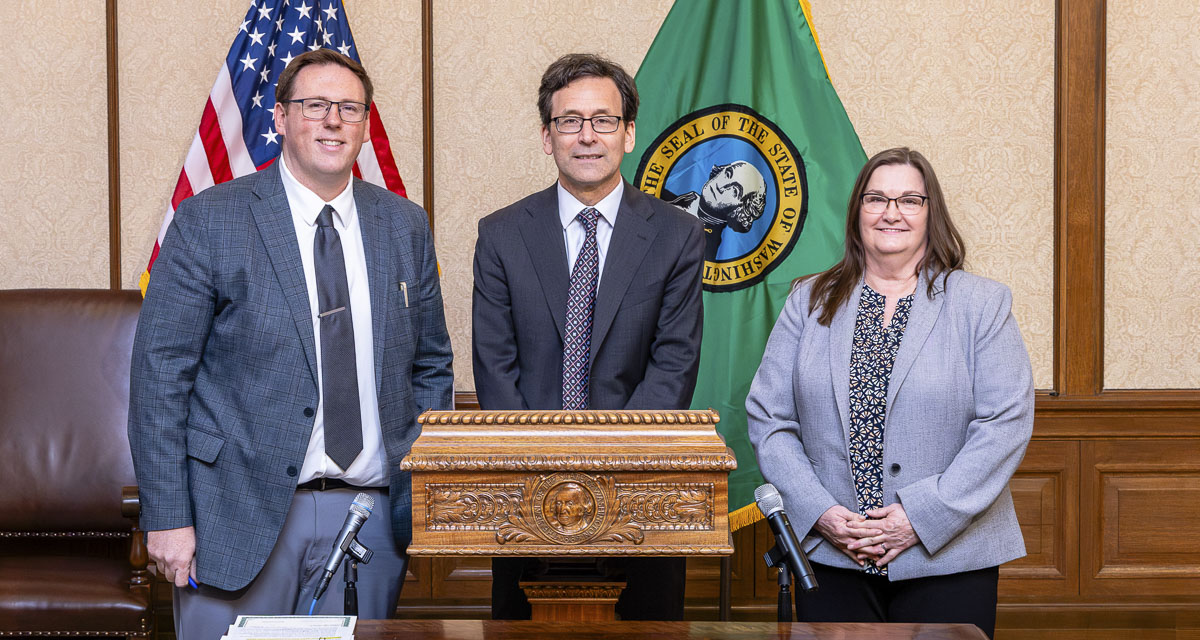
Both bills will take effect 90 days after the adjournment of the 2025 session, which ends on April 27
Two bipartisan bills from Rep. Kevin Waters will take effect later this year after being signed by the governor this week, including one that will allow alcohol producers and breweries to sublet their kitchen space.
On Tuesday, House Bill 1602, which unanimously passed both chambers, allows breweries to subcontract the restaurant part of their business to individuals or entities better suited for running the food service side.
“This is a simple bill, but it will significantly impact Washington breweries,” said Waters. “It will enable them to provide safely prepared food options to their customers, provide consumers with more options and convenience when dining out. It will also allow many would-be breweries currently in limbo because of the different rules and requirements to open.”
In most cases, breweries that make and sell beer are not restaurateurs. Currently, a brewery must meet specific food service requirements to operate a new location using a restaurant liquor license. HB 1602 will change that.
“Some breweries just want to focus on beer-making and not worry about the restaurant aspect of their business. This bill makes it possible for brewers to do that,” concluded Waters.
Meanwhile, on Monday, the governor signed House Bill 1609, which promotes the efficient administration of state education agencies by allowing the Office of the Superintendent of Public Instruction to use a designee on the Board of Natural Resources.
Current law specifies that the superintendent is a board member and does not authorize the use of a designee. HB 1609 will allow the superintendent more time to supervise the administration of school policies and procedures by sending a designee in his or her place to meetings about timber sales that fund schools.
“Education in Washington is suffering, and the superintendent has a lot of issues to worry about,” said Waters. “This bill allows him to focus on more pressing education issues in our state.”
Waters continued: “All opinions and votes would still come from the superintendent, but attending every one of these meetings is not the best use of the superintendent’s time. However, if this does become law, the OSPI needs to choose a designee with timber expertise who can make the right decisions for our timber communities.”
The BNR sets policies to guide how the Washington State Department of Natural Resources manages the state’s lands and resources. The OSPI is on the BNR because public schools receive money from timber sales off DNR trust lands.
Both bills will take effect 90 days after the adjournment of the 2025 session, which ends on April 27.
Information provided by Washington State House Republicans,
houserepublicans.wa.gov
Also read:
- WA governor pressed to veto $1.8B piece of Democrats’ tax billGrocers and restaurateurs are urging Gov. Ferguson to veto a surcharge in HB 2081 that they say will raise food prices statewide.
- Letter: ‘It’s said sarcasm is the lowest form of wit’Amboy resident Thomas Schenk criticizes Olympia’s use of “emergency clauses” and other legislative tactics that limit public participation.
- Opinion: What the 2025 legislature tells us about why Washington’s government keeps failingTodd Myers of the Washington Policy Center argues that Washington’s government fails because it resists humility, experimentation, and accountability in its policymaking.
- Town hall: Republicans say they are the ones fighting for the working classFour Republican legislators gathered in Battle Ground for a town hall to address rising taxes, education concerns, and their push to support Washington’s working class.
- Pooneh Gray Files for Vancouver City CouncilPooneh Gray has filed to run for Position #1 on the Vancouver City Council, emphasizing public safety, homelessness solutions, and community justice.










